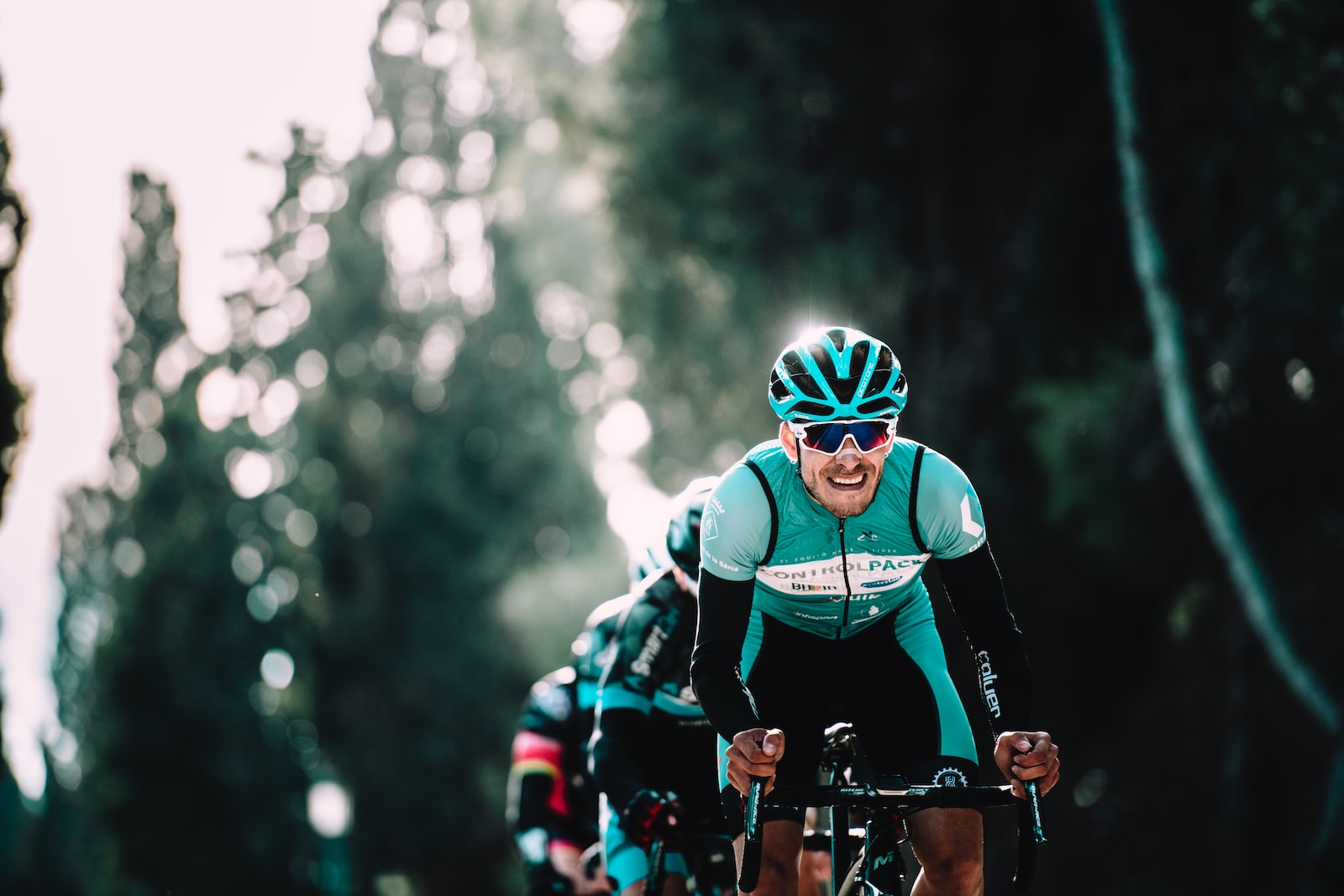Embarking on the demanding journey of long-distance cycling requires not only physical prowess but also a meticulous approach to nutrition. Cyclists, engaged in a highly demanding sport, must prioritize a balanced diet and strategically plan their nutritional intake before, during, and after training and competitions. This guide navigates the nutritional landscape for cyclists, exploring the indispensable role of fats, carbohydrates, proteins, vitamins, and minerals in optimizing performance and fostering overall well-being.
Fueling the Ride: An In-Depth Look at Essential Nutrients
1. Fats in a Cyclist’s Diet
Saturated Fats: To be avoided due to their tendency to adhere to arteries and tissues. Animal fats and certain vegetable oils, such as coconut and palm oil, fall into this category.
Hydrogenated, Semi-Hydrogenated, and Trans Fats: Found in industrial pastries, snacks, and pre-cooked foods, these fats increase bad cholesterol, reduce good cholesterol, and elevate triglycerides.
Unsaturated Fats: Crucial for a balanced diet, found in liquid vegetable oils. Emphasizes the importance of monounsaturated and polyunsaturated fats, particularly essential fatty acids like OMEGA-3 and OMEGA-6.
2. Carbohydrates: The Powerhouse for Cyclists
Simple Carbohydrates: Rapidly absorbed and lead to a quick insulin spike. Includes monosaccharides (glucose and fructose) and disaccharides (sucrose and lactose).
Complex Carbohydrates: Slowly absorbed, providing sustained energy. Includes digestible or absorbable carbohydrates (starches) and indigestible or non-absorbable carbohydrates (fiber).
Importance of Carbohydrates: Vital for athletes, comprising around 55% of the total daily diet. Highlights the significance of carbohydrate loading before competitions.
3. Proteins: Building Blocks for Cyclists
Daily Proportion: Around 15% of the diet. Athletes may require a higher protein intake due to increased wear and tear.
Essential and Non-Essential Amino Acids: Essential amino acids must be obtained through the diet, emphasizing the importance of branched amino acids (leucine, valine, and isoleucine).
Protein Consumption: Recommended around 0.8 to 1 gram per kilo of body weight. Sources include fish, meat, milk, cheese, eggs, and plant proteins like soy and wheat germ.
4. Vitamins: Guardians of Physiological Health
Water-Soluble and Fat-Soluble Vitamins: Categorizes vitamins into water-soluble (B group and vitamin C) and fat-soluble (A, D, E, F, and K). Emphasizes the importance of maintaining a balanced and varied diet to prevent vitamin deficiencies.
B Vitamins and Antioxidants: Highlights the significance of B vitamins for athletes, especially during high-intensity exercises. Antioxidant vitamins (A, C, and E) neutralize free radicals, crucial for cellular health.
5. Minerals: Vital Elements for Cycling Performance
Macro and Microminerals: Discusses the importance of macro minerals (sodium, potassium, chlorine, sulfur, calcium, phosphorus, and magnesium) and microminerals (iron, iodine, zinc, copper, manganese, selenium, silicon, and fluorine).
Properties and Food Sources: Explores the properties and food sources of essential minerals, addressing the significance of sodium and potassium in cellular regulation, calcium and phosphorus in metabolism, iron in oxygen transport, and magnesium in preventing muscle cramps.
Mineral Loss during Exercise: Acknowledges the substantial loss of minerals through sweat during exercise, necessitating their replenishment for optimal sports performance.
Strategies for Cyclists: Navigating the Nutritional Landscape
1. Pre-Competition Preparation
Optimal Hydration: Stresses the importance of optimal hydration before competitions, emphasizing the need for fluid intake before, during, and after events.
2. Temperature Considerations
Effect of Temperature on Liquids: Acknowledges the positive effects of temperature on liquid consumption and suggests that cold drinks, while comforting, are particularly beneficial during prolonged or high-temperature competitions.
3. Training for Hydration
Integration into Training: Encourages athletes to train their bodies for regular fluid intake during training to avoid digestive discomfort on competition days.
4. Alcohol Avoidance
Negative Impact of Alcohol on Recovery: Advises against the consumption of alcoholic beverages after training or competition due to their immediate and long-term effects on the body, including delayed energy reserve synthesis during recovery.
Beyond the Physical: The Psychological Aspect of Nutrition
Mindful Eating for Positive Performance
The Mind-Body Connection: Explores the psychological aspect of nutrition, highlighting the importance of mindful eating for fostering a healthy relationship with food. Connects mental well-being with improved stress management and overall enhanced athletic prowess.
Recovery Strategies: Leveraging Hydration for Maximum Benefits
Efficient Recovery Through Nutrition
Post-Exercise Fluid Replacement: Stresses the critical role of fluid replacement immediately after exercise, encouraging athletes to weigh themselves before and after training to determine the amount of liquid lost.
Sodium and Carbohydrate Inclusion: Recommends post-exercise drinks containing sodium to aid fluid retention and supply electrolytes lost through sweat. Emphasizes the need for carbohydrates to replenish muscle glycogen stores.
Navigating Dietary Challenges for Consistent Hydration
Strategies for Overcoming Dietary Challenges
Travel-Friendly Nutrition Plans: Offers practical strategies for athletes to overcome dietary challenges, especially during travel, ensuring consistent and effective hydration without compromising performance.
Sustaining Excellence: Hydration for Longevity in Cycling
Long-Term Perspective on Nutrition
Adapting to Changing Demands: Explores the concept of hydration for longevity, emphasizing the importance of adapting hydration practices to changing training demands and addressing age-related considerations.
Conclusion: Hydration as a Catalyst for Cycling Triumph
In the dynamic world of cycling, where endurance, strategy, and physical prowess converge, nutrition emerges as the linchpin for unlocking peak performance. This comprehensive guide equips cyclists with the knowledge to fuel their rides effectively, optimize recovery, and navigate the intricacies of dietary challenges.
As athletes internalize the principles presented, they transcend the realm of competitors to become architects of their success. Through the symbiotic harmony of nutrition and cycling, athletes embark on a journey not just towards victory but towards a sustained legacy of greatness in the cycling arena. As the wheels turn and the pedals spin, fueled by the wisdom of nutrition, cyclists redefine their limits, push boundaries, and etch their names into the annals of cycling history. In every drop of sweat and every calculated intake of nutrients, athletes find the formula for enduring triumphs, making each ride not just a race but a testament to their indomitable spirit and unwavering dedication to excellence.

